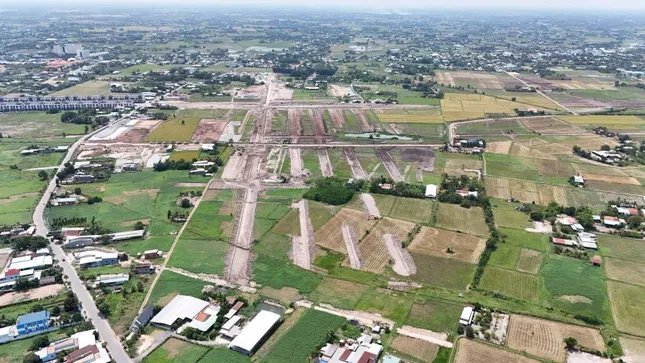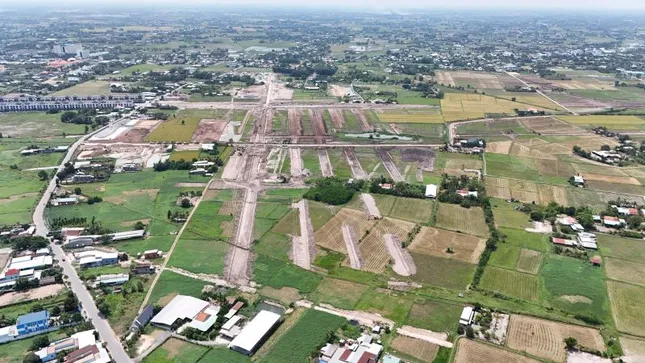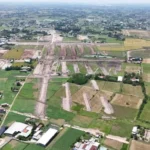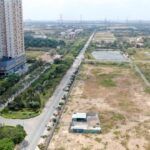The Director of the Institute of Resource and Environmental Economics in Ho Chi Minh City has proposed to the city’s People’s Committee Chairman, Nguyen Van Duoc, to increase the price of agricultural land in the land price framework to 65-70% of residential land prices to reduce land use fees for locals.
Decision 79/2024 on amending and supplementing Decision 02/2020 on land prices in Ho Chi Minh City has been instrumental in resolving issues related to compensation, resettlement, land rent, and taxes.
However, the current land price framework sets the price of agricultural land too low, resulting in budget shortfalls as locals have withdrawn their land transfer tax dossiers.
The Institute of Resource and Environmental Economics has assessed the market impact of the land prices set by Decision 79/2024. The evaluation reveals that the increased land prices have adversely affected the overall market in the city.

The Institute proposed adjusting agricultural land prices in Decision 79 to 65-70% of residential land prices.
This has led to reduced budget revenues from changes in land use purposes, hindered the real estate market, and caused a significant downturn in the construction materials market due to limited new construction projects initiated by locals. These changes have had a noticeable impact on people’s livelihoods, with businesses facing challenges in maintaining their operations, and consumers reducing their spending.
According to Dr. Pham Viet Thuan, Director of the Institute of Resource and Environmental Economics, locals now have to pay 250-300% more in taxes when converting agricultural land to residential land due to the significant price gap between the two land types in the city’s land price framework. This has resulted in many locals being unable to afford the increased land use fees.
To ensure objectivity and compliance with the Land Law 2024, and in anticipation of the new land price framework coming into effect on January 1, 2026, the Institute of Resource and Environmental Economics recommends that the Chairman of the Ho Chi Minh City People’s Committee reevaluate the low agricultural land prices, which lack scientific basis and market principles as stipulated in Decree 71/2024.
Therefore, it is proposed to adjust the land prices for the last six months of 2025 to alleviate the difficulties faced by locals and increase budget revenues before the new land prices take effect on January 1, 2026, for the newly merged Ho Chi Minh City. This localized adjustment of agricultural land prices under Decision 79/2024 is within the authority of the Ho Chi Minh City People’s Committee and complies with the Land Law and related legal regulations.
The Institute of Resource and Environmental Economics suggests adjusting agricultural land prices in Decision 79 to 65-70% of residential land prices within the land price framework. This adjustment applies to agricultural land located within residential areas or on the same plot as residential land.
Unlocking the Appeal of The Global City: 6 Golden Factors for Long-Term Growth Potential
The East of Ho Chi Minh City is asserting its position as the new economic and financial center, with “The Global City” redefining living and investment standards. Developed by the renowned international real estate developer, Masterise Homes, this urban area is attracting long-term investment with its six core pillars.
Transforming Land Use: Fees Surge by 300%
The new land pricing policy has resulted in a significant increase in taxes for those wishing to change their land usage. With a 250-300% surge in taxes for converting agricultural land to residential use, many individuals are now facing financial challenges due to the substantial rise in land use conversion costs.
Appointing Leadership for the National Assembly Delegation of 23 Merged Provinces and Cities
Chairman of the National Assembly Tran Thanh Man has issued resolutions on the appointment of head and deputy head delegates of the National Assembly for various provinces and cities, following a recent reorganization.










































